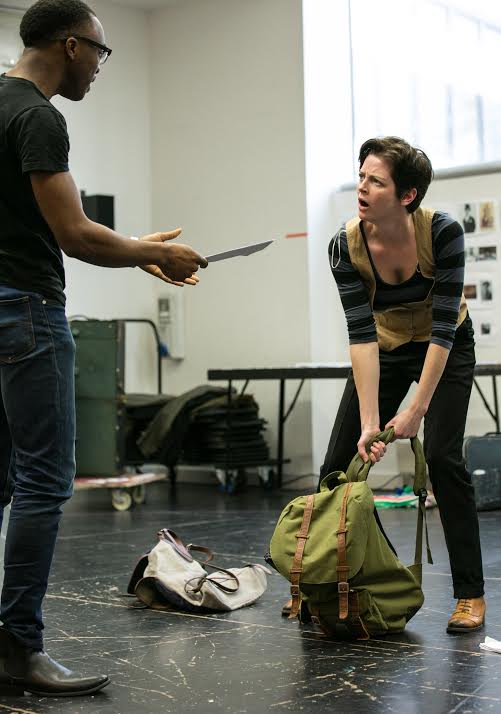After many years as a journalist, JOY WILKINSON is finally doing what she has always wanted to do – write plays for a living. Her new work, Britain’s Best Recruiting Sergeant, is set to give young people a fascinating insight into the First World War…
Vesta Tilley was a pioneering star, whose celebrated act as a male impersonator made her one of the most popular and highly paid variety performers of her generation. Her taboo-busting routine was loved by both men and women in the reserved society of Edwardian Britain.
When the First World War broke out, her much-loved musical act played a crucial role in military recruitment and she was nicknamed ‘Britain’s Best Recruitment Sergeant’. Now Vesta’s life is to be celebrated at the Unicorn in an exciting new play by Joy Wilkinson.
She explains how the story came about: ‘I was commissioned by Unicorn to write something – [artistic director] Purni Morrell wanted to do something about the First World War and I knew her from when she was at the National Theatre studio. I’d been looking into World War One for a TV project and came across Vesta Tilley in that and thought it would be good as her story is so theatrical.’
The play tells Vesta’s life story, focussing on the war years. Joy says: ‘It starts when she was four when she first went on stage. She was an incredibly driven child who knew exactly what she wanted to do. This really chimes with young people today who see fame as something to aim for. That felt like the way in for me – it wasn’t about a person from a hundred years ago, it was all about a child.
‘Vesta started playing boys when she was nine or ten. For the first five years she had played girls and old maids; but then she saw her dad playing more interesting characters. She tried on his costumes and felt that was how she could express herself. Vesta then became a male impersonator and was very precise about it, very method about it; it was a perfect meeting of what she was good at and a bit of sensation at the time.’
The play follows her whirlwind journey from London to America, all the way to becoming one of the highest paid women in showbiz.
When war breaks out, she still has to go on stage – and this is where the issues lie. As Joy explains: ‘So far, her act has been taking the mickey out of young men and now these young men are being heroes. She is faced with a conundrum of what to do and what she comes up with is to help recruit the troops. She became known as Britain’s best recruiting sergeant – she would do her songs on stage and the men would come up.
‘She once recruited a whole platoon from Hackney in London – 300 guys signed up and went off to war. My play doesn’t judge her but asks really interesting questions about what powerful people do in war.
‘For today’s children who live far away from war, you can ask: ‘Is there anything I can do about it? Am I colluding in any way?’ Vesta believes she did the right thing. She couldn’t see what was going on because she was in the bubble of the show business world.’
Her nemesis is a character called Algy who falls for her; he’s one of the lads who signs up and goes off to be a hero. We see his letters to her – but he’s one of the lads who does not come back. When his mother writes to Vesta, asking her to dress up and be him, she becomes haunted.
Joy is pleased with her work. She says: ‘It’s a way of telling the story in a way kids can understand but there is that absolute darkness there with just enough ‘this is not real’. I want to ask questions of my audience. Kids are great at asking questions and coming up with more imaginative answers. Their train of thought will run on; they will start to figure out how they feel about war, how they feel about conflict.
‘Vesta asks ‘what else could I have done?’ and that’s a good starting point of discussions afterwards. On the one hand she’s an incredibly powerful figure; but then she reverts to ‘I’m just a girl’.’
With music and tunes that Vesta sang like Daisy Daisy and Where Did You Get that Hat? young audiences are promised a great introduction to this era, thanks to the work of director Lee Lyford. Joy adds: ‘It’s a great way to bring the First World War to life. I don’t sit there and police the text while Lee is working. I do love to go in and see my work come to life. I love that feeling when you hand your work over to people; it’s a real adventure!’
The Best Recruiting Sergeant runs until March 15 at the Unicorn Theatre. The play is directed by Lee Lyford with set and costume designed by Hayley Grindle, lighting by Joshua Carr, music by Tarek Merchant and sound design by Edward Lewis. The cast is Tom Espiner, Caleb Frederick, Mia Soteriou and Emily Wachter. More details www.unicorntheatre.com



